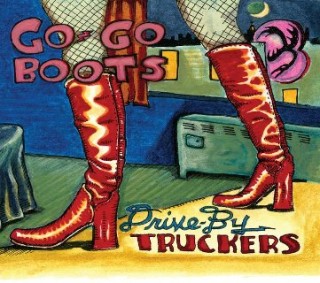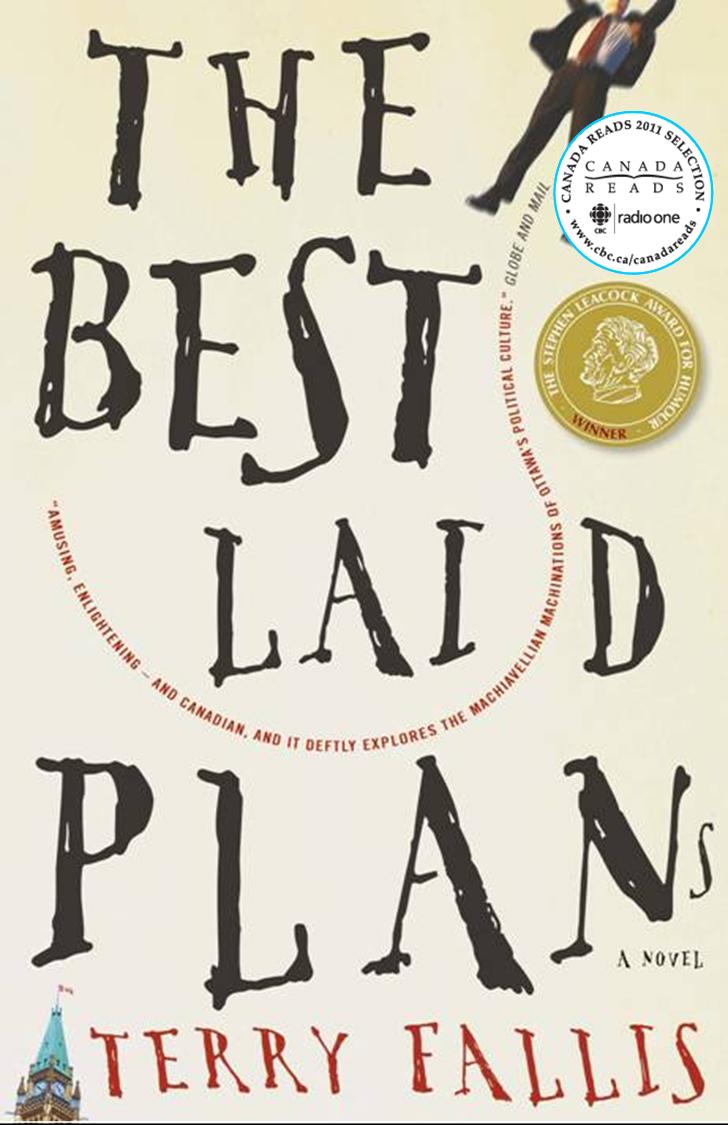It’s that time of the year again: Time for me to list my favourite albums of the year. These are not necessarily the best albums, but the ones I’ve enjoyed the most this year.
Compared to 2010, 2011 was kind of a quiet year in music. It was a year that didn’t have any overt great albums (like my number 1 &2 last year, Titus Andronicus' The Monitor & Arcade Fire's The Suburbs), but had some pleasant surprises that rewarded patience in the listener.
I decided to do a top 15 list this year because I had trouble narrowing my list down to ten. Give all of these albums a listen. They are all quite enjoyable in their own ways.
Some Honourable Mentions:
Destroyer - Kaputt
F**ked Up - David Comes to Life
Fruit Bats - Tripper
My Morning Jacket - Circuital
15. (tie) Foo Fighters- Wasting Light/R.E.M. - Collapse Into Now
I started off with a tie, because I wanted to include both albums on this list, and I had trouble ranking them. They are both pretty similar. Both were albums that rejuvenated a band after a brief period of stagnation.
The Foo Fighters recorded this album in Dave Grohl’s garage, trying to get that raw sound. As a result, Wasting Light is more lively and urgent than previous Foo fighter albums, and shows that Grohl and the band still have some good albums left in them.
REM ended up breaking up this year after 30 years together, but what a high note to go out on. Collapse Into Now, I’d argue, is REM’s best album in over a decade. Tightly constructed, with great lyrics and hooks. I wanted to hear more from them.
Key Tracks on Wasting Light: Rope, Walk, These Days
Key Tracks onto Collapse into Now: Discoverer, Me, Marlon Brando, Marlon Brando and I, Alligator_Aviator_Autopilot_Antimatter
14. Drive By Truckers – Go-Go Boots
One of the more consistent bands in the past decade, Drive-By Truckers released another solid album. Recorded around the same tame as 2010’s The Big To Do (Number 7 last year for me), this album is more soul and country inspired, compared to the southern rock found on The Big To Do. The band are great musicians and songwriters, and that alone makes this album worth listening to. In addition, the production on this album is amazing. It feels like they are performing in the same room as you.
Key tracks: Go-Go Boots, Used to be a Cop, Everybody Needs Love.
13. Bon Iver- Bon Iver
I’m not as high on Bon Iver, and its front man Justin Vernon, as some people are. I’m not happy with the many artists they have inspired, who think that recording some boring ass folk tunes on old recorders in the middle of nowhere constitutes great art, and I don’t like the people who prop these milquetoast musicians up as the emotional voices of our generation. I’m pretty sure I could do the same thing. Nevertheless, open mind and whatnot. I listened to this album, and there is some stuff to be impressed about. The album is built around strong soundscapes that take the listener away, and the songs have a semblance of structure, which a lot of the followers lack. A good album and I can appreciate the talent Vernon and his band have, but it's not a top ten album for me. I see it as the “Beautiful Dark Twisted Fantasy” of 2011. Good album, but not the best as critics claim.
Key Tracks: Holocene, Wash. , Calgary
12. Dawes – Nothing is Wrong
The sophomore album from Dawes was a pleasant surprise. More urgent than their sleepy debut North Hills, the band turns up their amps, writing an album that feels like Neil Young could have released it as a follow-up to Harvest. I love good songwriting and lyrics, and they’re here in abundance on this album. Plus this album has a pulse, unlike North Hills.
(Disclaimer: As much as I make fun of the album, North Hills is quite good, suitable for a lazy afternoon or early evening out in the desert. This is an album for an evening in the city).
However, I need to throw this out here: I like Dawes. I really do. I love their folk sound inspired by the legacy their hometown left (Laurel Canyon
Key tracks: Time Spent in Los Angeles
11. This Hisses – Surf Noir
One of the better albums to come out of Winnipeg
Key Tracks: Lycanthrope, Gold on Fire, Swagger, Snakewine
10. The Weeknd – House of Balloons
This album was released for free on the Canadian R&B artist’s website, and garnered attention when Drake mentioned them on his Twitter. And this album, the first of three mixtapes released throughout 2011, I feel is their best. This album is what I feel R&B and hip hop needs; a little grit, rather than glam. Minimalist, sparse production that creates a mood of loneliness, combined with lyrics about the dark side of hedonism, allows the Weeknd to make the top ten. This could be one of the most influential albums released this decade. Check it out on their official website.
Key Tracks: High for This, The Morning, Wicked Games, Coming Down
9. Real Estate – Days
8. Cut Copy – Zonoscope
I loved this album when it was released at the beginning of the year. Compared to In Ghost Colours, I felt that it was tighter and more concise, with none of the wasteful transitions that bogged down that album. I loved the world music influence throughout the album, and the sound that somehow feels organic, despite being mostly electronic. This was the best dance record of 2011, enjoyable both being blasted through speakers, or listened to on your bed in headphones and zoning out.
Key Tracks: Need You Now, Take Me Over, Blink and You’ll Miss a Revolution, Sun God
I think this could be the most surprising pick on my list, but this album was impossible to ignore. The best-selling album of 2011, it has spent 42 out of 43 weeks in the top five on the charts, and sold at last count, almost 5 million copies. The runner-up*, Lady Gaga’s Born This Way, has sold close to two million copies as of this writing. Why has the public gravitated towards Adele? Is it because the pop market is so saturated with acts that are more spectacle, and she has a semblance of actual talent?
Adele isn’t a perfect artist by any means. Nobody is. But she was good. And in an era where talent is scarce, she’s a beacon of hope. Her voice is amazing and filled with emotion. Not many pop artists have that talent. Besides, you can’t hate on Rolling in the Deep; a perfect pop song. And it’s been stuck in my head. Adele is one of those artists that not only lived up to her hype, but managed to exceed it. I want more from her in the future.
6. The Black Keys – El Camino
Much like The White Stripes, The Black Keys write and perform blues inspired rock music that has managed to catapult them from indie darlings to headlining arena acts. Unlike other bands, The Keys have managed to keep their trademark sound basically the same, and haven’t pandered to a mass audience. El Camino follows up their breakthrough album Brothers with 11 tracks or pure, unadulterated, garage rock bliss. Every song on this album I can hear being played on the radio (cliché number 2). What makes the Black Keys special is their ability to make every song feel distinct, despite having only two members. I love this album, and you should too.
(Note: This album came out in December. I felt that if I ranked it higher, it wouldn’t be right. If it came out earlier in the year, it would be in the top 2).
Key Tracks: Lonely Boy, Little Black Submarines, Money Maker, Run Right Back
5. The Strokes - Angles
Key Tracks: Under Cover of Darkness, Two Kinds of Happiness, Taken for a Fool, Life is Simple in The Moonlight.
4. Tom Waits – Bad as Me
Key Tracks: Chicago
3. TV on the Radio – Nine Types of Light
Before recording this album, the genre defying Brooklyn group TV on the Radio went on hiatus. It seems to have re-energized them. The band had a touch act to follow: 2008’s Dear Science was considered by many publications to be the best album of that year. A lesser band could have delivered a disappointing follow-up, but they managed to refine their sound further.
Nine Types of Light has more emphasis on groove and soul throughout the album. There is still a healthy amount of experimenting on this album, with songs bouncing from glitch, to industrial, and finally closing on a straight up rocker. Chaotic, yet controlled, this is one of the best albums of the year, and a worthy companion to Dear Science.
Key Tracks: Second Song, You, Caffeinated Consciousness, Will Do.
2. Radiohead – The King of Limbs
This will be contentious, I’m sure.
Radiohead fans put the band on a pedestal, and react negatively when an album is not an instant masterpiece. I remember when The King of Limbs was first released in February, the reaction was very mixed, bordering on negative. As the year went on, I’ve noticed the reception changing a bit, but many still consider it a misstep in the band.
Radiohead are a great band. In my opinion, they are the best band since Pink Floyd. They push the boundaries in their genre, and many bands today cite them as an influence. Look at the British music scene before OK Computer was released, and look at the music scene after the album.You can do the same thing for the follow-up masterpiece, Kid A; every band that came around after those albums are trying to sound like Radiohead. Their albums are not instantaneous masterpieces, but reward patience and dedication. I’ll bring up Kid A again. When it was first released, it was very polarizing; now it’s considered the best album of the 2000’s. Will The King of Limbs be the best album of the decade? It’s too soon to tell. We’ll check in a few years.
Anyways, back to the album. High quality album from start to finish. Only one track I skip over (Feral). Easily the best headphone record of the year, and I still notice little details on each listen. The best use of electronics by any band today. The album sounds great performed live (even better than the studio album), and the extra tracks from these sessions (Supercollider/The Butcher & The Daily Mail/Staircase) that have been released are all well done (the latter two especially).
That is why The King of Limbs is my second favourite album of the year.
I’m going to quote from my column that I wrote about this album for The Endeavour, dated November 30, 2011.
". . . The Whole Love is Wilco’s eighth album, and also the first release from their own label, dBpm. Compared to Wilco (The Album)’s more standard sound, this album is best described as a cross between Yankee Hotel Foxtrot and Summerteeth. It is also their best album since Yankee hotel Foxtrot.
Wilco’s strength is their ability to merge the unconventional elements of music with strong songwriting and traditional hooks. Their songs are carefully constructed, and quite catchy. Each song is unique, from the jazzy shuffle of "Capitol City," to the folk rock of "Black Moon," and the jangly guitars of “Born Alone.” Despite shifting genres, no song feels out of place on the album. It’s a skill that few bands can master. In addition, I believe that this incarnation of the band, who have been together since 2004, is their best lineup yet. They’ve really gelled together in the albums they have played on.
The Whole Love is bookended by two experimental tracks. “Art of Almost” last seven minutes, beginning with some distorted bass, moving towards a simple rhythmic main section, and drives to the finish with one of the best two minute guitar solos you’ll hear this year.
The album closer, “One Sunday Morning,” is about 12 minutes long. It’s a simple, almost Dylan-esque song, built around Tweedy’s guitar playing and pained vocals. It is one of the saddest songs that Wilco has ever written.
You’d be hard pressed to find a better album this year. I give it the highest possible recommendation."
Key Tracks: Art of Almost, Born Alone, Capitol City
*Editor's Note: At the time of this writing, Born This Way was the number 2 selling album of the year but has since slipped to number 3. Michael Buble's Christmas album is the new second best seller.





















